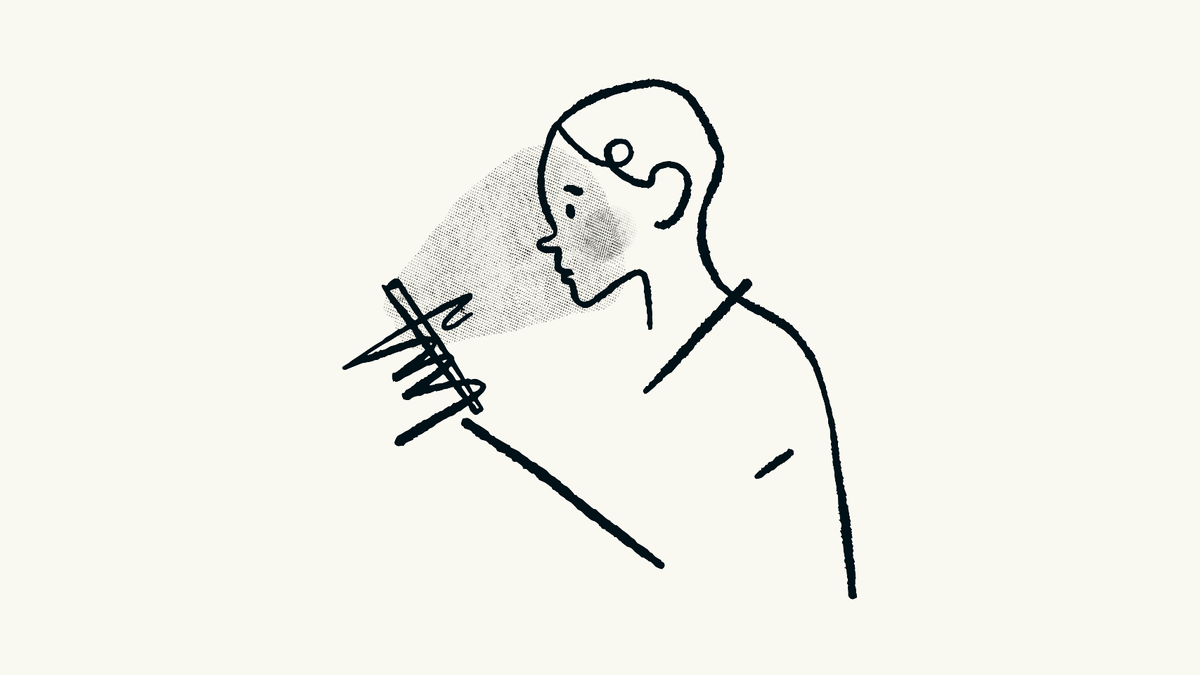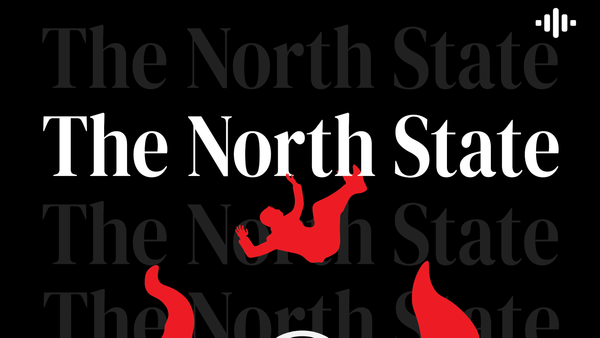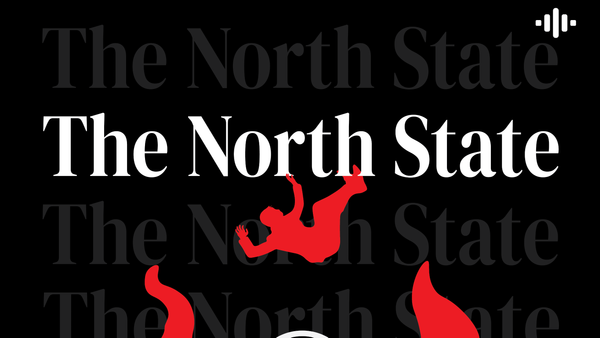Teens Lack News Media Literacy, Thanks to Conservatives
The Toronto Star's dive into high-rates of conspiracy-prone teens lacks an analysis of right-wing politics

On September 2, The Toronto Star published an excellent piece by staff reporter Alex Boyd about young people’s susceptibility to misinformation and disinformation. The article is worth reading in its entirety, as it pulls from various sources about how teens and pre-teens accept information more uncritically than their adult counterparts. Though, the adult stats aren’t much more comforting.
As the piece notes, one study conducted by the Center for Countering Digital Hate (CCDH) in 2021 found that 60 per cent of 13-17-year-olds surveyed in the US agreed with four or more “harmful conspiracy statements.” These included conspiracy beliefs about vaccines, COVID and antisemitism. Their adult counterparts didn’t fare much better, reaching 49 per cent in the same category. Though this is in the US context, Boyd also writes about the Canadian non-profit organization MediaSmarts’ surveys covering the uptick in disinformation being accepted in recent years.
There are many reasons for this failing media literacy that are explored in the article, and all mentioned receive necessary coverage. These range from the increasingly outsized role that the online sphere plays in teen lives, to the role of bad political actors intentionally spreading misinformation or disinformation (as always, Russia seems to be the sole example of this). Solutions are even offered, pointing to Finland’s push to foster skepticism from a very young age.
But while these all deserve (and receive) careful evaluation in a great piece of journalism, there’s one elephant in the room that goes completely unaddressed: the role of right-wing domestic actors in promoting this type of behaviour.
The reasons for the Star not covering this be safely assumed. In a story not ostensibly about right-wing movements in Canada, poking the bear would deliver unnecessary flak to the outlet. This behaviour is notable, but not exceptional in large news corporations. But the role that right-wing movements in Canada have played to amplify disinformation and reduce the capability to parse through news stories is a key factor in this dynamic that must be addressed.
Federal Conservatives Attack News Media
Let’s start with the obvious: conservatives detest accurate reporting that contradicts their rhetoric and policies.
Federal Conservative leader Pierre Poilievre made a big public stink about defunding the CBC earlier this year, and conservative outlets jumped at the chance to defend the move. The Hub released an article citing Fraser Institute scumbags and conservative columnists about how exactly this would be done, proposing “privatizing the entire operation.” The Foundation for Economic Education, a US-based right-wing think tank, put simply that people shouldn’t fund the CBC because they’re whiny babies.
The best argument for defunding the CBC is the basic moral principle that people should not be forced to fund things they disagree with. Even if the CBC were completely fair in its journalism and a fraction of the cost, it would still be wrong to make people fund it, because making people fund things they don’t want to support is simply wrong. Even if it had no impact on a free and competitive press, compelled support would still be immoral.
Presumably, this argument does not apply the costs associated with selling weapons to Saudi Arabia, or funding the salaries of an imperialist apparatus with a sexual assault problem, and instead only applies to an outlet that does journalism.
Though a motion to defund the CBC was strongly voted down at the recent Conservative convention, it should be noted that this motion bundled the CBC with the Quebec-centred, french-language counterpart Radio-Canada That entity does not receive the same type of scrutiny among conservatives. This is something that Poilievre has been attempting to reconcile while still standing against the CBC.
It’s at this point that I should point out that the CBC is not a flawless entity and deserves plenty of scrutiny. But when compared to outlets with fawning coverage of Poilievre like the far-right outlet True North, or an asinine Canadian YouTubers admitting their interview style is to “basically just to let him talk,” it’s a no-brainer. Poilievre is not criticizing their reporting for upholding white supremacist conspiracy, he simply wants to kneecap a source of frustration for him and his party.
Poilievre has also famously rode the coattails of the Convoy movement, which thrives on fascistic conspiracy. He signals to their theories directly in order to court them. When the leader of our federal opposition is promoting some of the conspiracies that younger people are more susceptible to, how does that not warrant a mention?
Important to note here that the federal Conservatives’ war on journalism will only ramp up in the future. Most recently, for their convention, they denied media accreditation to The Maple (disclosure: I have written for them) and to The Breach, two outlets with a critical reporting style that covers issues from a progressive lens.
The majority of youth intending to vote for Poilievre will only grow, as those more willing to accept conspiracy inch closer to voting age, with less access to critical coverage by important outlets.
Provincial Conservatives Attack Education
Though the rhetoric of the federal Conservatives is notable, the push to foster news literacy and critical reading in schools falls under the domain of provincial governments. Unsurprisingly, budget cuts routinely target the education system, leaving it unable to function at its current capacity, let alone bring new educational techniques to the forefront.
Ontario Premier Doug Ford has decreased funding by $1.3 billion in 2022, and included another hidden cut of $47 million this year. In fact, the Ontario government’s own reports indicate that the Ontario school system’s shortfall will reach a height of $12.3 billion by 2030. During the early days of the pandemic, the Alberta government slashed education funding, and pretends that their budgets since are adequate, when they aren’t. The Progressive Conservative government in Manitoba was planning to cut education funding when documents were leaked earlier this year, though they denied this was the plan when asked by press outlets.
Besides this, both the federal and provincial conservative movements have made trans people the target of their ire. They choose to focus on policies and rhetoric that harm 2SLGBTQIA+ students, signalling that their only concern is exposing children to dangerous home environments. Considering the right-wing industrial complex against trans people, this becomes intertwined with the conspiracy mindset they help foster. Even in the midst of a Greenbelt scandal that never ends for Ford, he used this tactic to accuse school boards of indoctrination in regards to trans students.
This disgusting rhetoric and attack on school systems are integral to young students ability to recognize when they are being given inaccurate information, especially on purpose. Right-wingers are frequently more likely to believe this onslaught of dishonesty, (though no political persuasion is immune), and the largest social media sites boost this view. The right-wing benefits from this susceptibility to misinfo/disinfo, any analysis of its rise must include this dimension.
Name and Shame
The reporting done by the Star undoubtedly exposes a concerning trend among young people in our society. It’s important to document these things, as well as raise the issue of education and dishonest figures in facilitating this rise. But the blame can’t be shuffled to foreign actors and the nebulous ubiquity of the internet.
In reality, these aspects exist within neoliberal capitalist society, which can be used to explain why these eye-grabbing tactics have become prevalent. The market dictates watch time, clicks and engagement. The easiest way to drive this is through rage, which the right-wing uses to their advantage with simple answers to complex problems.
Liberals and “left” actors in society are also not immune to this critique, or in perpetuating the engagement-economy, but to pretend that their actions are equivalent to the ramping up of the right is dishonest. Yes, liberals push the news media narratives that are the foundation of every “respectable” news outlet. Yes, these have flaws and systemic critique that can be made (as is the point of this newsletter). But they are not the political wing that benefits from the spread of misinformation. The right-wing conservative class is at the centre of this crisis, and to omit their contribution amounts to tacit approval.





